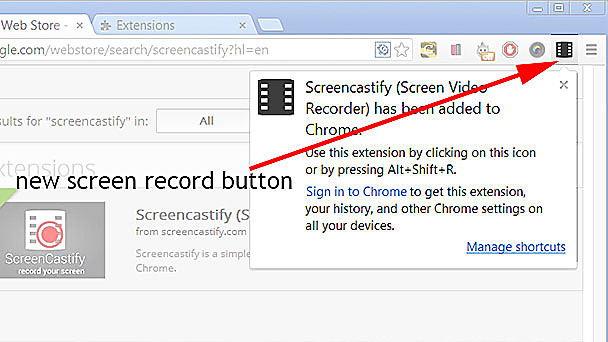

Image: Shutterstock
8 Ways Journalists Can Access Academic Research for Free
This tip sheet outlining ways journalists can access academic research for free, originally published in September 2018, has been updated with new information. This post was originally published by The Journalist’s Resource and is reprinted here with permission.
At The Journalist’s Resource, we’re big fans of research — especially the peer-reviewed kind. We know academic research is one of journalism’s most valuable tools for covering public policy issues and fact-checking claims.
Unfortunately, journalists often have trouble accessing studies published in academic journals. Many journals keep scholars’ work behind paywalls, and subscriptions can be prohibitively expensive for newsrooms and individual journalists. For example, a subscription to the Proceedings of the National Academy of Sciences, a journal of the National Academy of Sciences, is more than $200 a year for one person for personal use only. There are thousands of journals worldwide.
Resourceful journalists find other ways to get that information. Here are eight of them.
1. Go to the Library
Public libraries often subscribe to academic journals and anyone with a library card can read them. The good news for busy journalists is some libraries allow their users to access online databases of peer-reviewed research from any location.
US colleges and universities provide online access to academic journals through their academic libraries. State university libraries generally are open to the public. Private institutions often extend library privileges to alumni.
2. Ask Academic Journals for a Free Account
Many of the most popular journals give journalists complimentary access, although some limit free accounts to journalists covering specific topics or beats. The American Economic Association (AEA), for instance, offers news media professionals free access to all eight of its journals, including the American Economic Review. You can request an account through the association’s press page.
“I don’t think it’s something that’s widely known, but it’s a message we want to get out there,” says Chris Fleisher, the AEA’s web editor. “We want journalists to know they can access our journals if they like.”
It’s worth noting that many journals will share embargoed copies of research articles with journalists and alert them to new research on a topic of interest. Contact the journals you’re interested in to learn more.
3. Search Open Access Journals and Platforms
A growing number of scholarly journals known as open access, or OA, journals offer their online content for free to the public. Be aware that while there are many high-quality OA publications, some engage in unethical practices. A trusted source of reputable OA journals is the Directory of Open Access Journals.
Examples of top OA journals include PLOS One, the world’s first multidisciplinary OA journal, and BMC Biology.
Several online platforms also allow the public to access research at no cost. One is Unpaywall.org, a free database of almost 48 million free-to-read academic articles.
4. Check Google Scholar
Google Scholar is a web search engine that indexes research from various sources. Often, Google Scholar will provide PDF documents of research articles in its search results. However, some PDFs contain earlier versions of an article, including drafts that have not been peer reviewed or published.
While these earlier versions can be helpful, it’s important to contact the author before reporting on their findings. The findings highlighted in working papers are preliminary and may differ substantially from the final version published in a journal article. (To better understand the differences between a working paper and an academic article, check out our explainer.)
5. Install Browser Extensions
Browser extensions can help you check the web for free versions of academic articles. The Unpaywall browser extension gathers content from more than 50,000 journals and open-access repositories worldwide. The Open Access Button searches “millions of articles” from sources that include “all of the aggregated repositories in the world, hybrid articles, open access journals, and those on authors’ personal pages,” according to its website.
If the Open Access Button does not find free versions of the articles you’re looking for, it will contact the authors and ask them to share their work by putting it into an open access repository.
6. Reach Out to the People Who Did the Research
If you find a research article you’re interested in reading but can only access the abstract online, call or email the authors and ask for a complete copy. Journal abstracts generally include contact information for the authors or, at the very least, an email address for the corresponding author.
Researchers usually will share copies of their work with journalists. If a scholar shares a pre-published version of an academic article, be sure to ask how closely it resembles the published version and whether the findings are the same.
Another option: Researchers often post links to their academic research on their personal websites. Those who work for colleges and universities tend to list their published articles on their faculty pages.
7. Call the Media Relations Office
The media relations office of a university or research organization can help you track down a copy of an article written by one of its researchers. It can help you reach the authors as well.
The main drawback: While media relations offices generally are sensitive to newsroom deadlines, they may be busy helping many journalists at the same time. It’s often faster and easier to reach out to authors directly. If you have trouble getting researchers to respond, media relations staff members are usually willing to give them a nudge.
Universities also send out press releases promoting new academic research conducted by their faculty and research centers. Ask how to receive alerts about topics key to your beat.
8. Sign Up for Newsletters and Press Releases from Organizations That Promote Scholarly Work
A quick way to get information about new research from a bunch of different research entities is by signing up for emails from organizations such as Futurity and EurekAlert!
Futurity is a partnership of 47 universities in the US, Canada, Europe, Asia, and Australia. It highlights the work of scholars in four broad topic areas: culture, health, environment, and science.
EurekAlert! is a news-release distribution platform run by the American Association for the Advancement of Science. It hosts news releases from higher education institutions, medical centers, government agencies, academic journal publishers, corporations, and other groups involved in research across all fields.
Additional Resources
5 Tips for Using Academic Research in Investigative Journalism
New Models: How Academics, Nonprofit News and Government are Collaborating
How a Canadian Reporting Lab Is Pioneering Academic-Journalist Collaboration
 Denise-Marie Ordway joined The Journalist’s Resource in 2015 after working as a reporter for newspapers and radio stations in the U.S. and Central America, including the Orlando Sentinel and Philadelphia Inquirer. Her work also has appeared in publications such as USA TODAY, the New York Times, Chicago Tribune, and Washington Post.
Denise-Marie Ordway joined The Journalist’s Resource in 2015 after working as a reporter for newspapers and radio stations in the U.S. and Central America, including the Orlando Sentinel and Philadelphia Inquirer. Her work also has appeared in publications such as USA TODAY, the New York Times, Chicago Tribune, and Washington Post.









